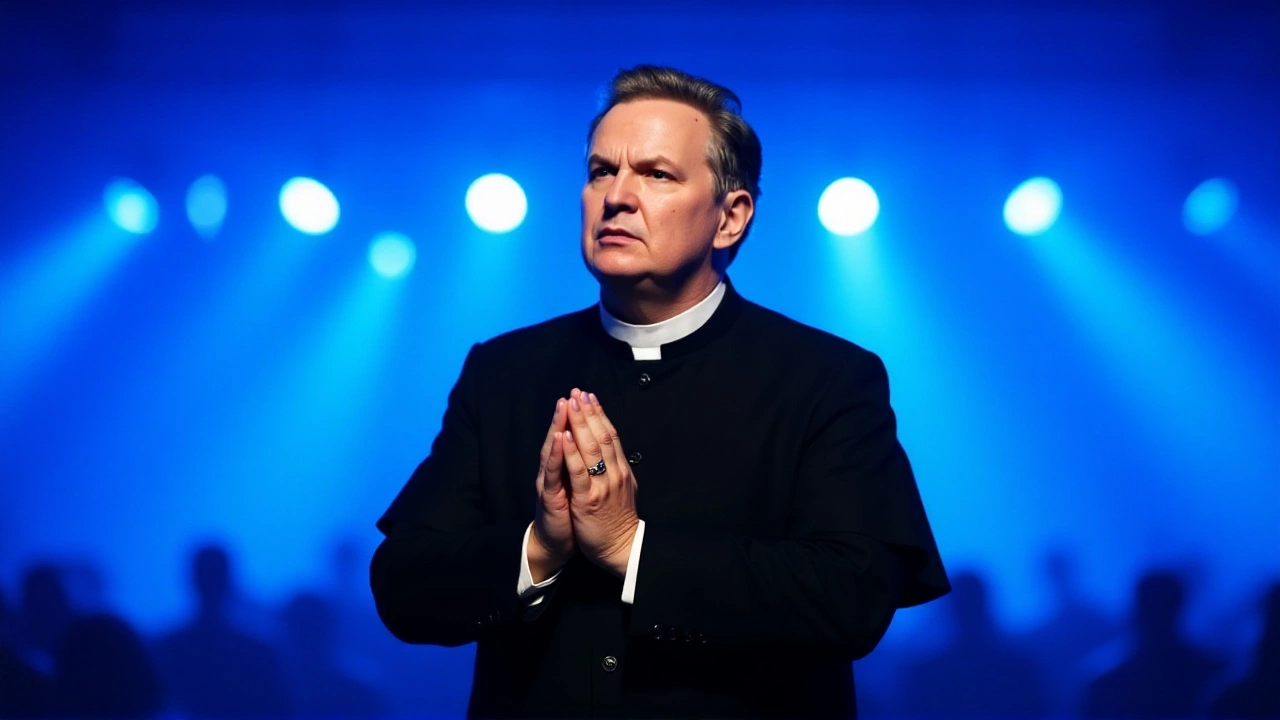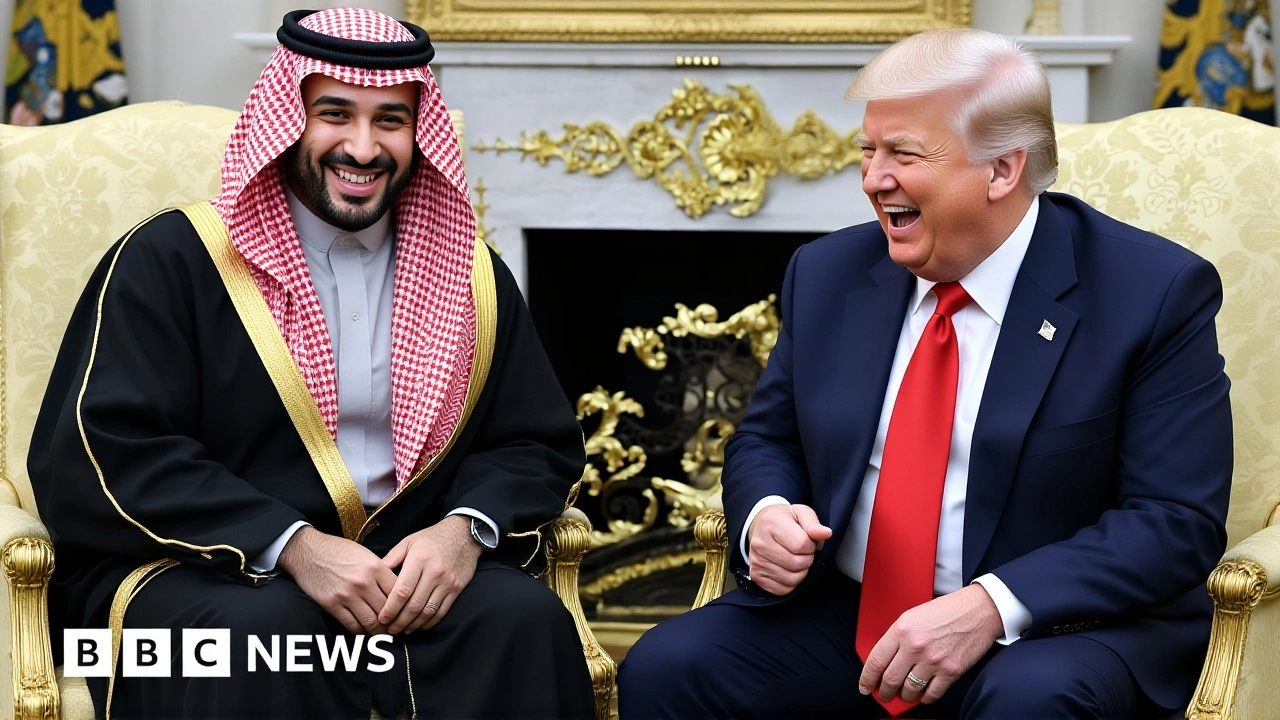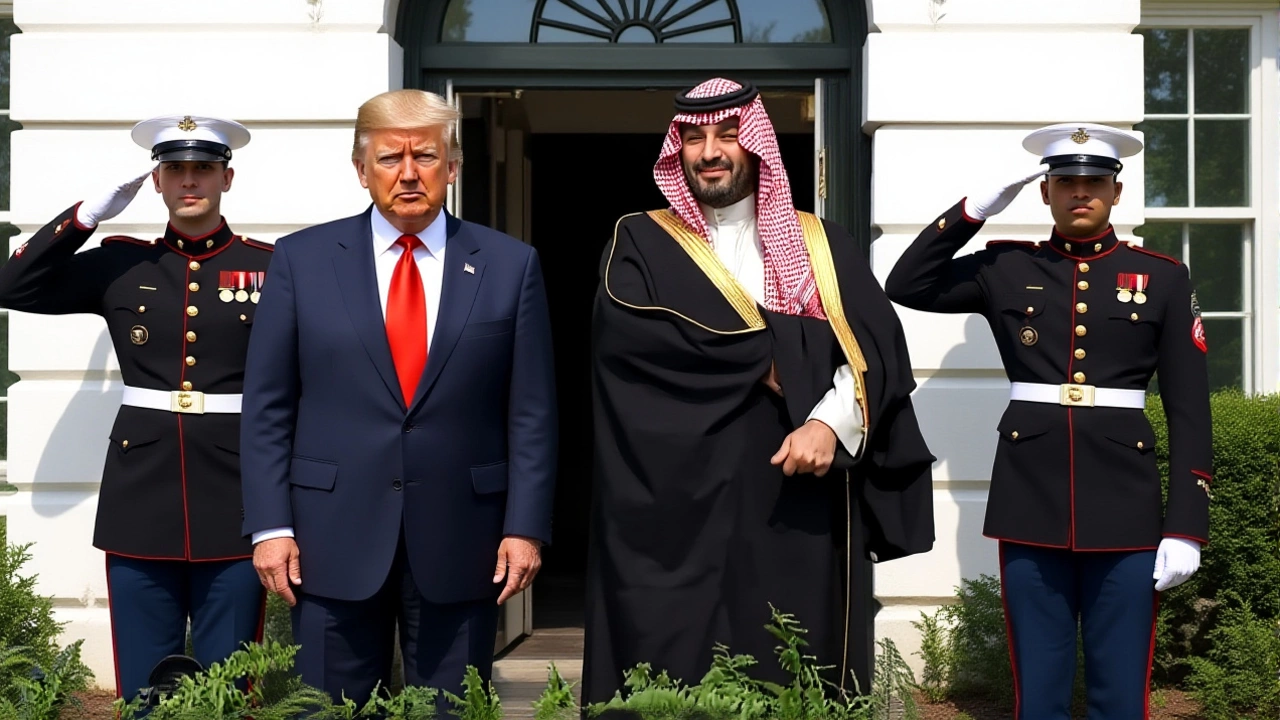On November 18, 2025, in the White House’s Oval Office, President Donald John Trump stood by Crown Prince Mohammed bin Salman as an ABC News reporter pressed him on the CIA’s conclusion that the Saudi leader personally approved the 2018 killing of journalist Jamal Khashoggi. The confrontation, captured on video and aired hours later, laid bare the deepening tension between U.S. accountability demands and the Trump administration’s continued alignment with Riyadh — even as the world remembers the brutal murder that shocked global press freedom advocates.
"It’s Been Painful" — MBS’s Rare Admission
When ABC News anchor David Muir asked, "Your royal highness, the U.S. intelligence concluded that you orchestrated the brutal murder of a journalist. 9/11 families are furious that you are here in the Oval Office. Why should Americans trust you?" — the room fell silent. Then, Crown Prince Mohammed bin Salman responded, his voice heavy with what sounded like genuine sorrow: "It’s really uh painful to hear you know anyone that been losing his life for uh you know no real uh purpose... or no not in a legal uh uh way and it’s been painful for us in Saudi Arabia. We’ve did all the right steps of uh investigation etc. in Saudi Arabia and we’ve improved our system to be sure that nothing happened like that and it’s painful and it’s a huge mistake and we we are doing our best that this doesn’t happen again."
It was the closest the Saudi leadership had ever come to admitting personal culpability. For years, Riyadh had dismissed the killing as the work of rogue operatives. Now, with the world watching, bin Salman called it a "huge mistake" — a phrase that contradicts his government’s official stance but aligns with the CIA’s 2018 assessment that he authorized the operation inside the Saudi consulate in Istanbul.
Trump’s Unflinching Defense
Before bin Salman finished speaking, President Donald John Trump cut in, waving off the question with a dismissive hand. "The CIA’s been wrong before," he said, according to multiple transcripts. "And they’re wrong now. This is a great partner. We’re talking about jobs, security, oil — and you want to bring up a seven-year-old incident?"
Trump’s defense wasn’t new. He’d called Khashoggi’s murder "terrible" in 2018 — but always followed it with, "But we’re selling billions in arms." Now, in 2025, the calculus hasn’t changed. His administration has quietly shelved sanctions against Saudi officials linked to the killing, while expanding defense contracts. The Trump Organization still maintains undisclosed business ties with Saudi investors, a conflict ABC News explicitly flagged during the exchange.
The 9/11 Factor and the Epstein Files
The reporter didn’t stop there. He reminded bin Salman that 15 of the 19 hijackers on 9/11 were Saudi nationals — and that families of the victims have spent years demanding transparency. "Why are you here?" Muir pressed. Bin Salman didn’t answer directly. Instead, he pivoted: "Building our relation continue developing our relation it’s critical in the safety of the world it’s critical against extremism and terrorism."
Meanwhile, just hours before the Oval Office meeting, Congress had passed legislation mandating the release of the Epstein files — a 30-day countdown to the public disclosure of documents tied to Jeffrey Epstein’s sex trafficking ring. Trump, who had blocked their release for months, now said he’d sign the bill. The timing was no coincidence. The files are expected to reveal connections between powerful figures — including foreign dignitaries — and Epstein’s network. Some analysts believe the pressure to release them may have been a factor in the administration’s willingness to allow bin Salman’s visit.

Parallel Tragedies: Baltimore’s Forgotten Victims
Even as the world focused on the White House drama, new findings emerged from the Francis Scott Key Bridge collapse in Baltimore. The National Transportation Safety Board confirmed that six workers — all immigrants from Mexico and Central America — received no warning before the bridge fell on March 26, 2024. They had roughly 90 seconds to escape. No alert was sent. No sirens blared. No one called out.
It’s a quiet tragedy, overshadowed by the spectacle of the Oval Office. But it’s the same story: systems fail. People die. Accountability is delayed — or buried.
What This Means for U.S.-Saudi Relations
This moment isn’t just about one interview. It’s the culmination of a decade-long U.S. policy shift: from moral posturing to transactional diplomacy. Trump’s defense of bin Salman signals that, regardless of intelligence findings or global outrage, economic and strategic interests still override human rights in Washington’s calculus.
For Saudi Arabia, bin Salman’s admission — however halting — could be a strategic recalibration. He’s trying to rebrand the kingdom as a reformer, even as dissent is still crushed. But the world remembers. The CIA’s report remains unchallenged. The UN’s special rapporteur still calls for an independent investigation. And the families of Khashoggi? They’re still waiting.

What’s Next?
Within 30 days, the Epstein files will be public. Expect names. Expect shockwaves. Meanwhile, the Saudi Press Agency continues to portray bin Salman as a modernizer — while his security forces silence critics abroad.
And in Washington? The White House has already begun preparing for bin Salman’s next visit — likely in early 2026, when a new energy deal is expected to be signed. The questions won’t go away. But the answers? They’re getting harder to ignore.
Frequently Asked Questions
Why did Trump defend MBS despite CIA findings?
Trump has consistently prioritized economic and military ties with Saudi Arabia over human rights concerns. His administration has blocked sanctions against Saudi officials linked to Khashoggi’s murder and approved over $10 billion in arms sales since 2018. He views MBS as essential to U.S. energy security and regional counterterrorism efforts, even when intelligence contradicts Saudi claims.
What did MBS’s statement actually admit?
For the first time, MBS acknowledged the killing of Jamal Khashoggi as a "huge mistake" and admitted Saudi Arabia’s system failed. While he didn’t say he ordered it, his language — "painful for us," "we did all the right steps" — implicitly accepts responsibility at the leadership level, contradicting Saudi Arabia’s previous claim that it was a rogue operation.
How does the Epstein files release connect to this event?
The Epstein files, set for release within 30 days, may expose ties between powerful figures — including foreign leaders and U.S. elites — and Epstein’s trafficking network. The timing suggests political pressure: Congress used the Khashoggi controversy to force transparency on another opaque issue. If Saudi officials appear in the files, it could further damage MBS’s image.
Why are 9/11 families angry about MBS being in the Oval Office?
Fifteen of the 19 9/11 hijackers were Saudi nationals, and families have long suspected Saudi government involvement in funding or facilitating the attacks. Though no direct link to MBS has been proven, his presence in the Oval Office — while denying responsibility for Khashoggi’s murder — feels like a betrayal to those who lost loved ones.
Has Saudi Arabia faced consequences for Khashoggi’s murder?
Saudi courts convicted five individuals in 2020, sentencing three to death — later commuted. No senior officials were held accountable. The U.S. imposed visa bans on 76 Saudis in 2020, but no sanctions on MBS himself. International pressure remains high, but with no criminal charges outside Saudi Arabia, justice remains elusive.
What’s the significance of the Francis Scott Key Bridge reference?
The bridge collapse highlights a pattern: when systems fail, marginalized workers pay the price — and accountability is delayed. Just as the six laborers had no warning before the bridge fell, Khashoggi’s murder was enabled by institutional silence. Both tragedies reflect a broader failure of protection — whether for journalists or construction workers.
